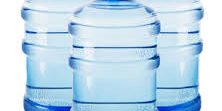We welcome the postponement of the EGMS rollout even though we have not been provided a date. We want to believe all stakeholders including KRA, Trade, Consumer Federation and the media will be called to discuss the rollout when everyone is ready.
This will help the industry as well as prepare consumers for the impending PRICE INCREASE and what is expected of them in terms of what to look for in products.
As an association, we are keen on having a level playing ground for everybody. We advocate fairness for all multinationals as well as the SME sector that plays a critical role in economic development of this country.
We all know that water bottling is an entry-level manufacturing that has given Kenyans an opportunity to experience what it takes to manufacture.
During the stakeholder meeting held countrywide, our members raised several issues that we wanted to be settled including the following:
• We requested that the model of refilling be looked into and accommodated for EGMS.
• We want SMEs to be protected against forceful automation of their processes having shared the same views in a memorandum in response to the proposed EGMS draft Regulation 2019. The proposed draft had nothing on SMES and it is prudent that as a government regulation it should accommodate all stakeholders whether BIG or SMALL, AUTOMATED or MANUAL.
The constitution of Kenya protects right to life from conception to old age. After a baby is born, he/she is fed with milk and carried around, later crawls, walks, runs and somehow learns to ride a bicycle or a motorbike. Later with growth and development into adulthood the person learns to drive an automobile, the model notwithstanding. There is a growth process that even entrepreneurs should be allowed to go through before being forced by any regulations to skip pertinent stages of business growth to levels where few have managed to reach.
Let us respect the uniqueness of every business as we strive to safeguard and improve the business environment. If we enact laws that stifle and discourage growth of entrepreneurship for the sake of raising taxes, we jeopardize the very economic growth we desire to achieve. If SMEs are killed, in the end we will not have businesses from which the government will collect the taxes. As much as the government needs to collect taxes, it should also consider the sustainability of SMEs, incubate them and allow them to grow through the challenging phases that a business undergoes.
We should be aware that this is also an industry that employs and support over 30,000 people directly and unknown indirect beneficiaries.
We are keen on getting every bottler on board and have no interest in leaving anyone behind due to bad and burdensome regulations that could lockout and discriminate against any Kenyan who is entitled to pay taxes as well as the privilege to contribute towards nation-building.
We know that our counterparts in the beer industry were reduced from over 100 to less than 30. That’s not the kind of output we would expect in this industry that deals in an essential product whose national reach is about 56%.
We are here to bridge that gap and at the same time help the governments fulfill the following obligations:
• Provide Employment and sustainability.
• Provide access to clean and safe water to Kenyans at an affordable cost.
Remember water is an essential product. It is the main component of human meal and makes up 55-80% of our body composition.
It is an essential element that could sustain life for over 21 days even without solid food.
We are glad that parliament even recommended that the product should not attract Excise duty as initially envisioned in Excise Duty act 2015 that ONLY taxed Mineral Water, aerated and carbonated waters under tax code 2201.10.00. Plain water never attracted SIN tax on purified drinking water under code 2201.09.00 as is the case with Tanzania, a member of EAC that allows its citizens to enjoy the essential product.
As an industry, we feel VAT is ok but not very necessary, but who are we? The Government must also get its fair share from the trade of the good.
Mon - Fri: 8AM - 5PMgiG Sameer Business Park,Blcock C3 1st Flr Mombasa Rd,Nairobi0721791608






